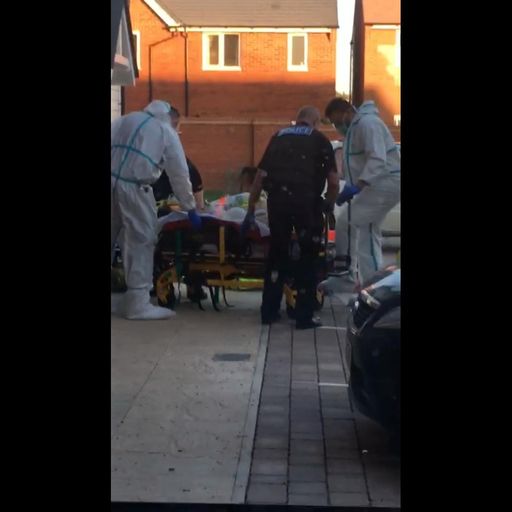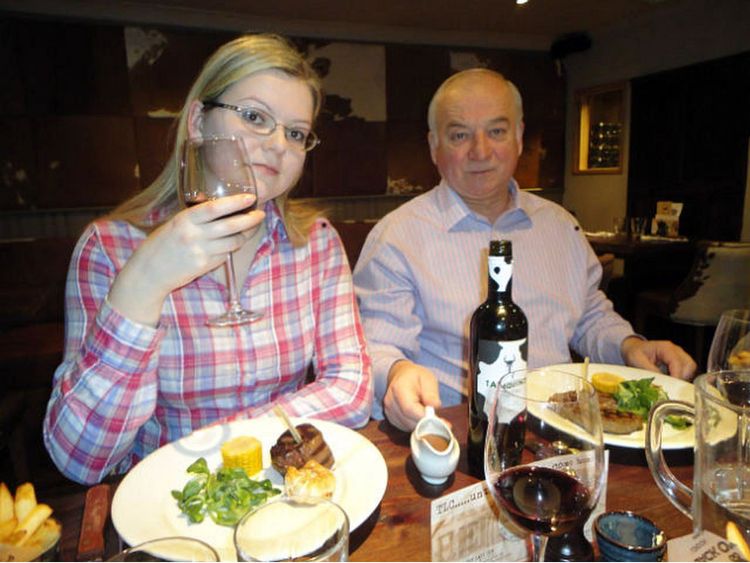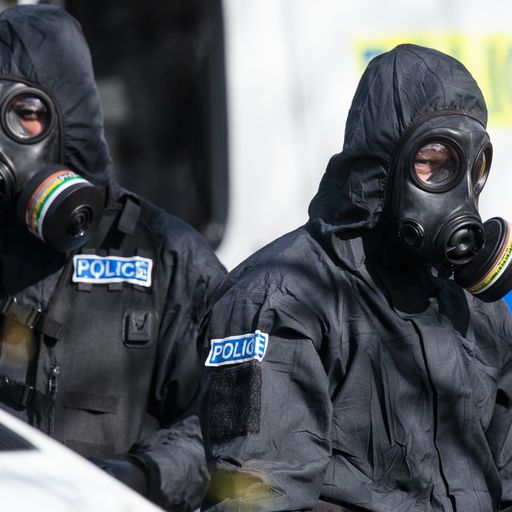Amesbury poisoning: Police hunt for novichok-tainted item as couple fight for lives
Dawn Sturgess and Charlie Rowley remain in a critical condition in hospital after becoming unwell in Amesbury near Salisbury.
Police are
hunting for the item contaminated with novichok that left a couple
fighting for their lives in Wiltshire, as officers refused to rule out
that more people could fall ill.
Dawn Sturgess, 44, and Charlie Rowley, 45, remain critically ill in hospital after being poisoned in Amesbury on Saturday.
There is no evidence that the pair visited any of the sites in nearby Salisbury that were decontaminated following the attempted murders of ex-KGB agent Sergei Skripal and his daughter Yulia in March, officials have said.
But it is understood one line of inquiry is whether Ms Sturgess and Mr Rowley came into contact with a contaminated container, such as a phial or a syringe, that was discarded after being used to poison the Russians.
Six locations visited by the couple in Salisbury and Amesbury before they fell ill have been cordoned off, including Mr Rowley's home on Muggleton Road, a Boots shop and a baptist church.
Officers have also evacuated the hostel in Salisbury where Ms Sturgess lived.
:: Which Salisbury nerve agent attack sites were decontaminated?
There is no evidence that the pair visited any of the sites in nearby Salisbury that were decontaminated following the attempted murders of ex-KGB agent Sergei Skripal and his daughter Yulia in March, officials have said.
But it is understood one line of inquiry is whether Ms Sturgess and Mr Rowley came into contact with a contaminated container, such as a phial or a syringe, that was discarded after being used to poison the Russians.
Six locations visited by the couple in Salisbury and Amesbury before they fell ill have been cordoned off, including Mr Rowley's home on Muggleton Road, a Boots shop and a baptist church.
Officers have also evacuated the hostel in Salisbury where Ms Sturgess lived.
:: Which Salisbury nerve agent attack sites were decontaminated?
The couple, who are known drug users, spent Friday afternoon and evening in Salisbury and visited a number of shops.
They are not thought to have been deliberately targeted.
Police were called to Mr Rowley's home in Muggleton Road, Amesbury, on Saturday when Ms Sturgess collapsed. They returned later that day when Mr Rowley also became ill.
Officers have cordoned off the estate where his home is and have evacuated the hostel in Salisbury where she lived.
It was initially believed they had possibly been using drugs from a contaminated batch, police said.
The chief constable of Wiltshire Police defended his force's initial response to the latest novichok poisoning but could not rule out that further people could fall ill.
Kier Pritchard also said he "fully supports" the decisions taken by officers who initially thought the couple had fallen ill after taking illegal drugs.
"I hope we are not back in this position in four months' time," Mr Pritchard said.
He added: "With the best information, with the available facts that were provided, the locations that we secured were deemed to be those that were fully adequate at that time."
:: Analysis: 'Accidental poisoning' serves useful purpose for PM
The Metropolitan Police say around 100 counter-terrorism detectives are working on the investigation alongside Wiltshire officers, and they were trying to identify the source of the novichok.
Health officials have said the risk to the public is low but have urged people in Salisbury to avoid picking up objects if they "don't know what they are".
And it has not been confirmed if the novichok was from the same batch that was used on the Skripals, who were released from hospital earlier this year.
The UK government blamed Russia for the Salisbury attack - an allegation the Kremlin denied.
Home Secretary Sajid Javid has accused Moscow of using Britain as a "dumping ground for poison", while the Russian embassy said the UK government was trying to "muddy the waters" and "frighten its own citizens".
Brian Tarpey, a former detective inspector who worked on the Alexander Litvinenko poisoning case, told Sky News: "I would say that this type of investigation is probably at the highest level of challenge for both the police and the security services. The potential political ramifications sit behind the investigation."
He said novichok was a "difficult agent to be investigating".







No comments